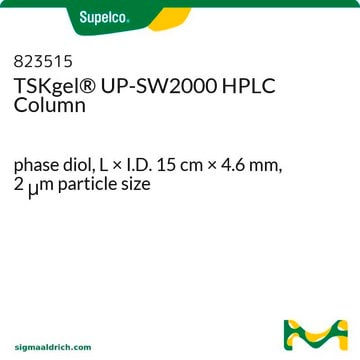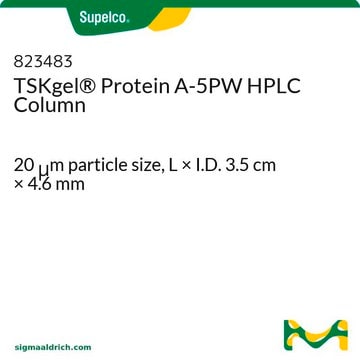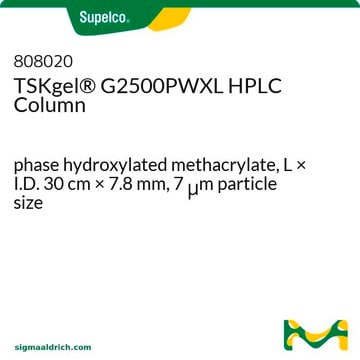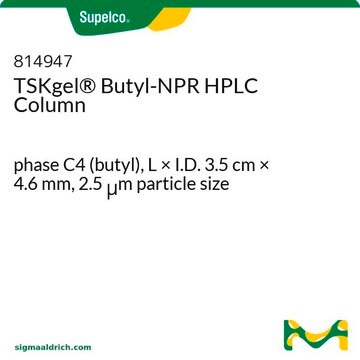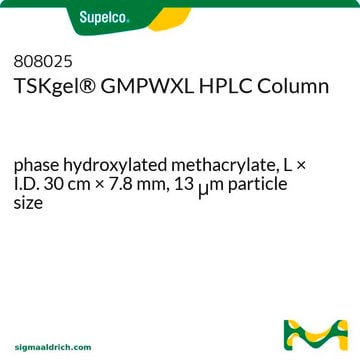823514
TSKgel® UP-SW2000 (2 µm) HPLC Columns
L x I.D. 30 cm × 4.6 mm, diol phase
Synonym(s):
TSKgel® UP-SW2000
About This Item
Recommended Products
product name
TSKgel® UP-SW2000 HPLC Column, phase diol, L × I.D. 30 cm × 4.6 mm, 2 μm particle size
material
stainless steel hardware
Agency
suitable for USP L20
product line
TSKgel®
manufacturer/tradename
Tosoh 23514
technique(s)
UHPLC: suitable
L × I.D.
30 cm × 4.6 mm
matrix
silica particle platform
matrix active group
diol phase
particle size
2 μm
operating pH range
2.5-7.5
separation technique
size exclusion (SEC)
Looking for similar products? Visit Product Comparison Guide
Related Categories
General description
TSKgel UP-SW2000 columns feature the same pore size as the well-established TSKgel SuperSW2000 columns. Hence methods developed using TSKgel SuperSW2000 columns can easily be transferred to TSKgel UP-SW2000 columns on conventional HPLC systems as well as on UHPLC systems.
TSKgel UP-SW2000 columns offer higher resolution, improved peak shape and increased efficiency yielding methods that are robust, reproducible and easily transferrable between UHPLC and HPLC systems.
TSKgel UP-SW2000 columns offer superior reproducibility injection-to-injection, from column-to-column within the same lot and from lot-to-lot. %RSD values for peak parameters including retention times, area peak height, peak asymmetry, and theoretical plate count demonstrate the exceptional reproducibility of these columns.
Legal Information
Choose from one of the most recent versions:
Certificates of Analysis (COA)
Sorry, we don't have COAs for this product available online at this time.
If you need assistance, please contact Customer Support.
Already Own This Product?
Find documentation for the products that you have recently purchased in the Document Library.
Articles
Separation and identification of oligonucleotides differing by one base in length using Size Exclusion Chromatography combined with multi-angle light scattering (SEC-MALS) detector.
Our team of scientists has experience in all areas of research including Life Science, Material Science, Chemical Synthesis, Chromatography, Analytical and many others.
Contact Technical Service
